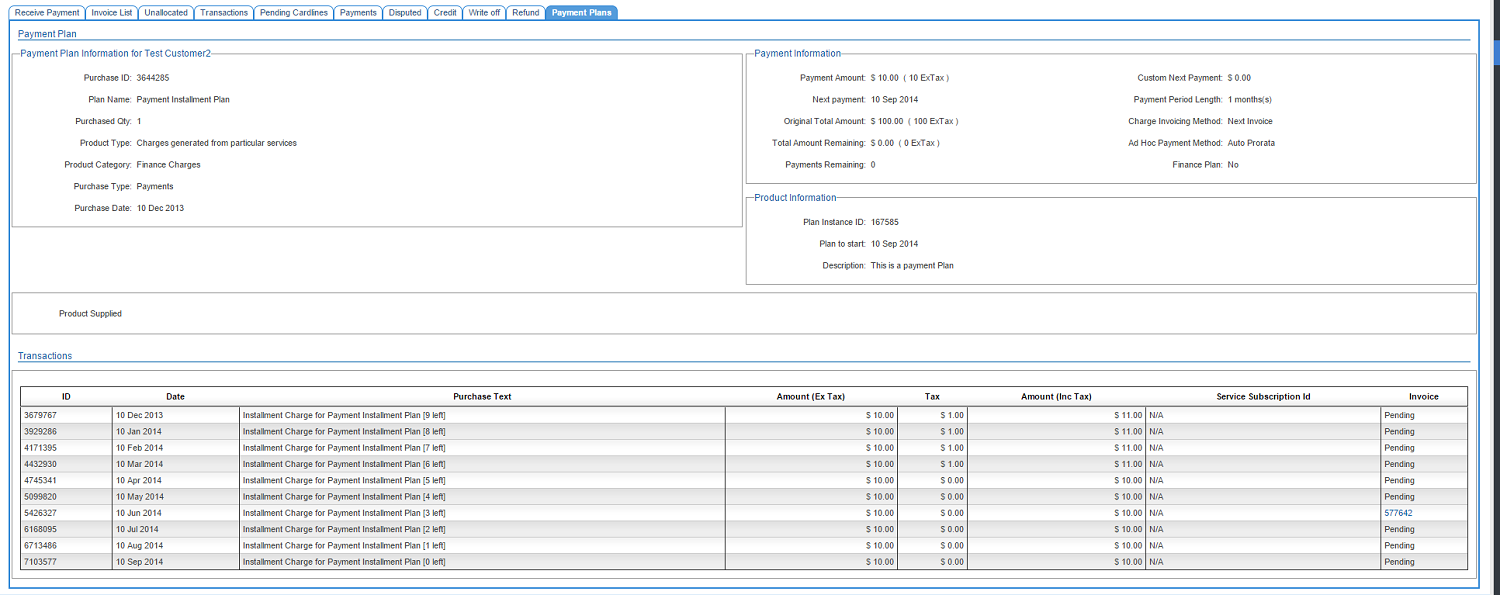Difference between revisions of "Payment Plans V2"
m |
|||
| Line 27: | Line 27: | ||
== Creating Payment Plans == | == Creating Payment Plans == | ||
| − | To create and configure a payment plan, see the article on [[ | + | To create and configure a payment plan, see the article on [[Payment_Plans_V2/Create_Payment_Plan | creating and configuring a payment plan]]. |
== Payment Plan Purchase Statuses == | == Payment Plan Purchase Statuses == | ||
Revision as of 10:48, 31 May 2018
Contents
Payment Plans
This suite of articles is exclusively written for the optional module of Payment Plans that is offered in addition to the standard Emersion offering for an additional fee. This is not related to the payment plans functionality that is available in the standard Emersion offering.
If you are interested in subscribing to Payment plans V2 or any of our additional modules, please raise a new sales ticket in the Emerson Support Portal.
Overview
Payment plans are used to transfer a customer's debt into a repayment process. Payment Plans can be set with a complete flexible and customisable payment arrangement and handles both regular and off-cycle payments. Users can also customise the number of payments, the amount per payment and payment period length.
Prerequisites
The following prerequisites apply in order to use payment plans.
- The service provider must use a credit card or direct debit payment gateway facility integrated with Emersion so that payments are automatically deducted from customers.
- The customer must have an automated payment method enabled. If the customer's payment method is not set and the user attempts to create a payment plan, the system will take the user to the Customer > Payment Methods screen and prompt the user to configure an automated payment method.
- Payment plans are invoice-based and can only be made for approved invoices with an amount owing. A single payment plan can be created spanning multiple invoices with unpaid amounts owing.
- Service providers must have an automated payment gateway configured.
- Disputed invoices cannot be part of a payment plan. Invoices with a dispute are required to be resolved before including it with a payment plan.
Service Provider Global Default Settings
The following default settings can be used to define the behaviour of all payment plans for a service provider. Emersion can set or adjust these for you upon request.
- Days Retry - If a scheduled payment is unable to be collected for any reason (e.g. insufficient funds or expired card), the system will record this as a failed transaction attempt. This setting defines for how many days the system will retry taking the payment. If the payment attempt continues to fail by the time the limit is exhausted, the payment plan will automatically be cancelled and the amount remaining will be added to the customer's account
Creating Payment Plans
To create and configure a payment plan, see the article on creating and configuring a payment plan.
Payment Plan Purchase Statuses
The statuses of a payment plan and their definition are below.
- Active - The payment plan is currently in progress.
- Complete - The payment plan is complete and the customer has made all payments owing
- Cancelled - The payment plan has been cancelled by a user or because the payment was unable to be collected.
Viewing All Payment Plans
You can view a list of all payment plans via the following path. Payment plans cannot be created from this page.
Nav: Finance > Accounts Receivable > Payment Plans
A list of Payment Plans will be displayed. You can use the search fields to retrieve a list of payment plans:
- based on status
- for a customer by searching on the name or account ID.
Open any payment plan by clicking the ID.
Payment Plan V2 Events
Four notification events are available to use with the payment plans module. You will need to set up templates for each event and enable them before they can be used. The events are:
- Payment plan has been created
- Payment plan transaction has failed
- Payment plan has been completed
- Payment plan has been cancelled

